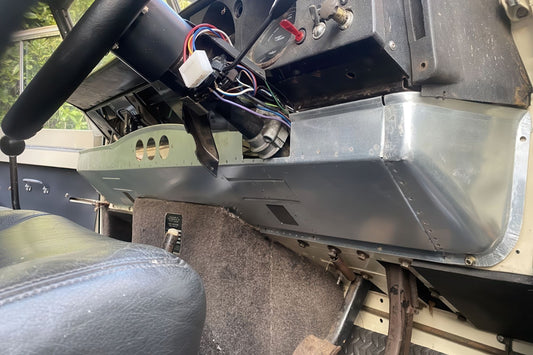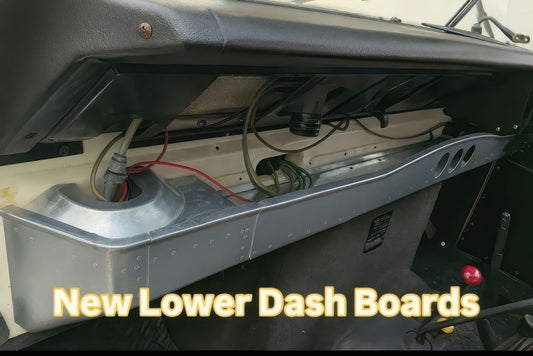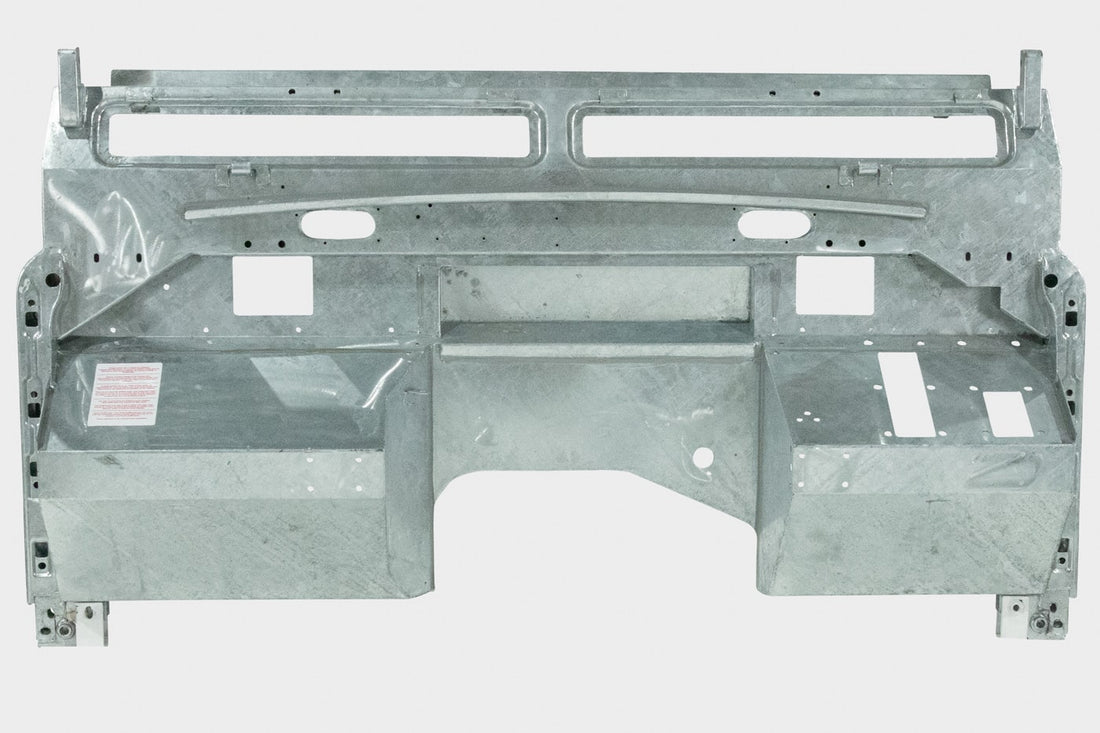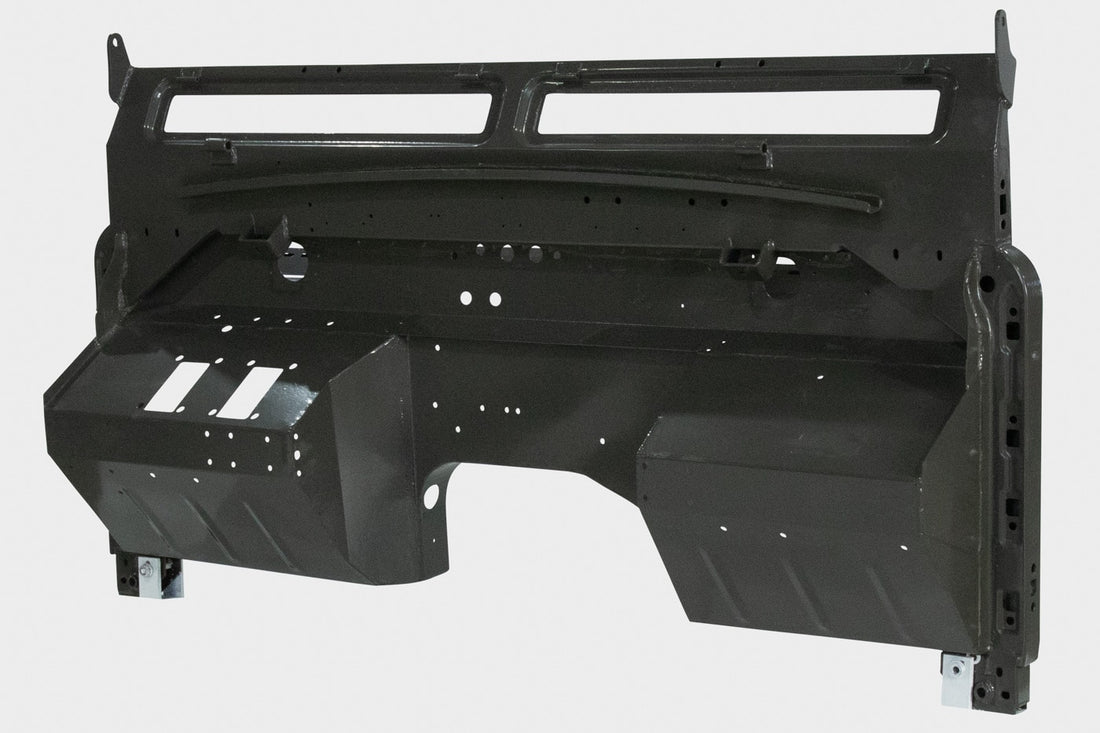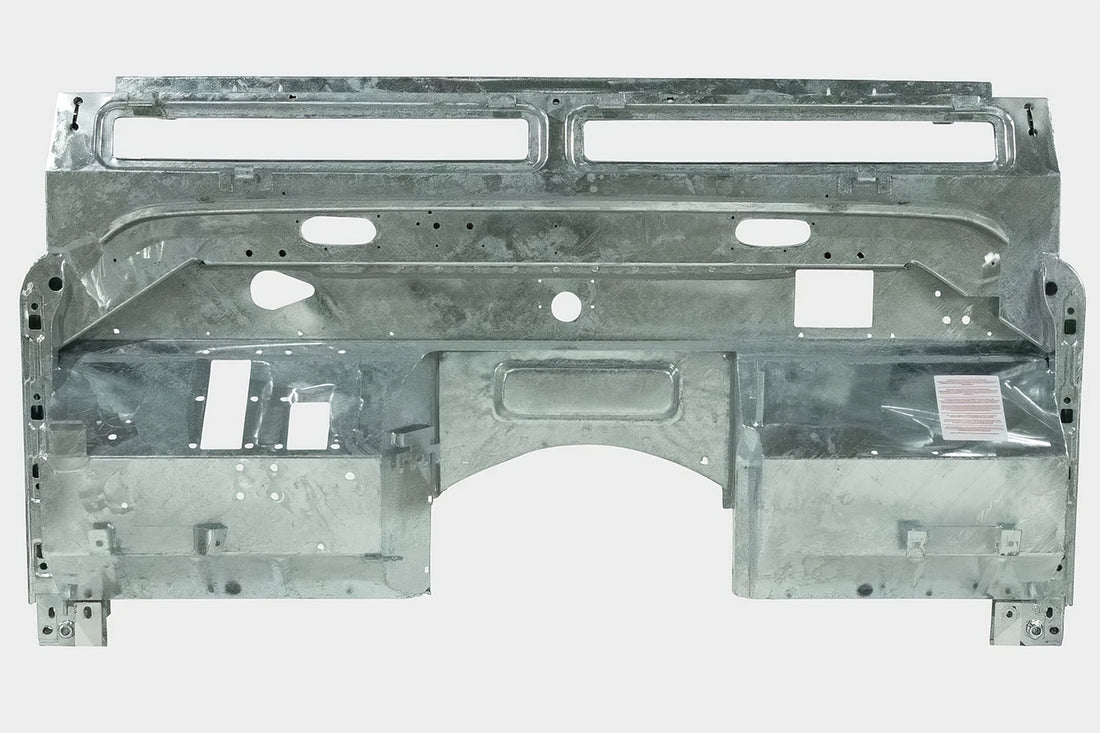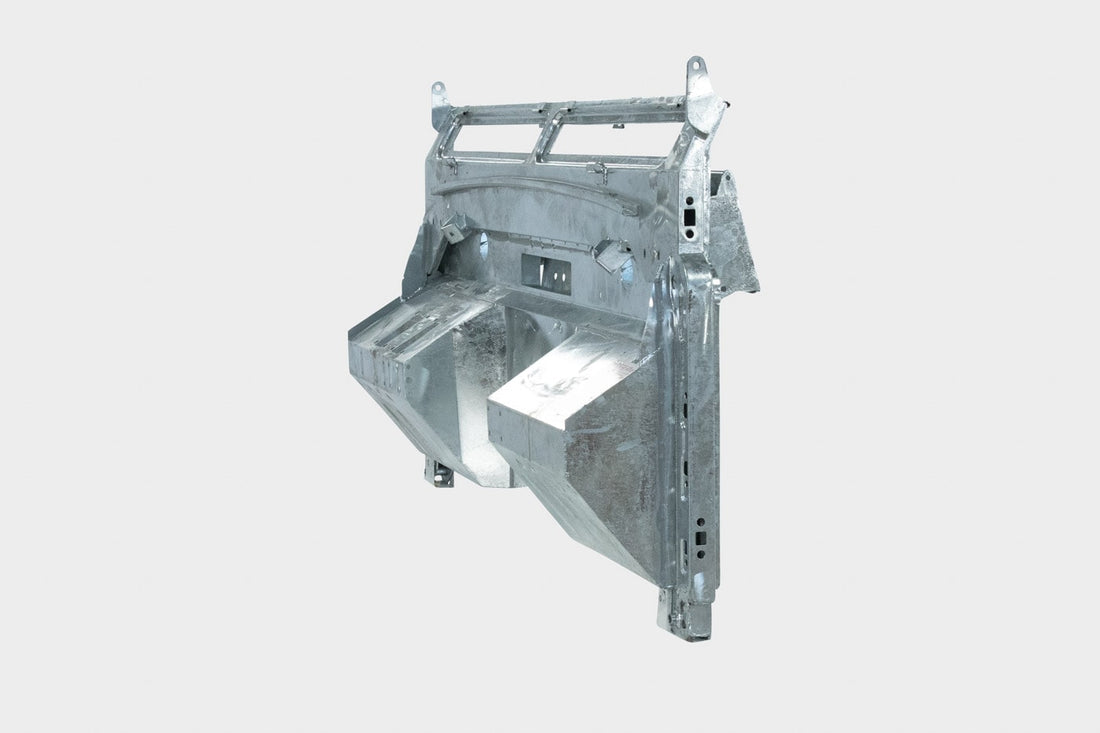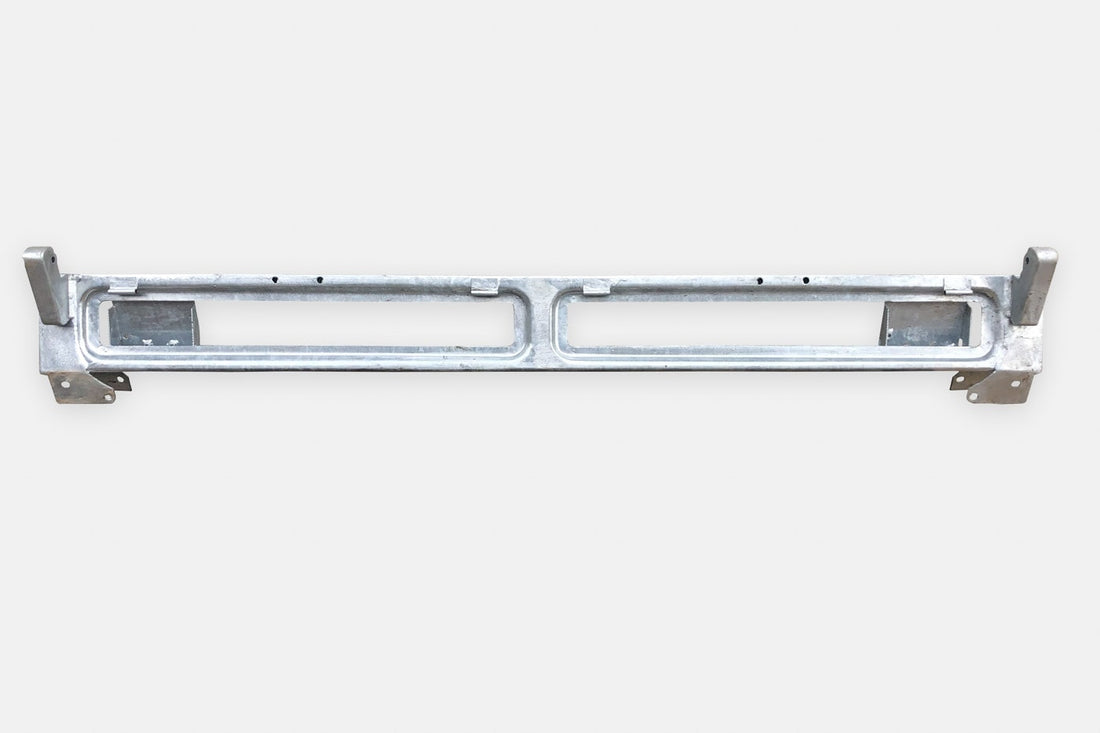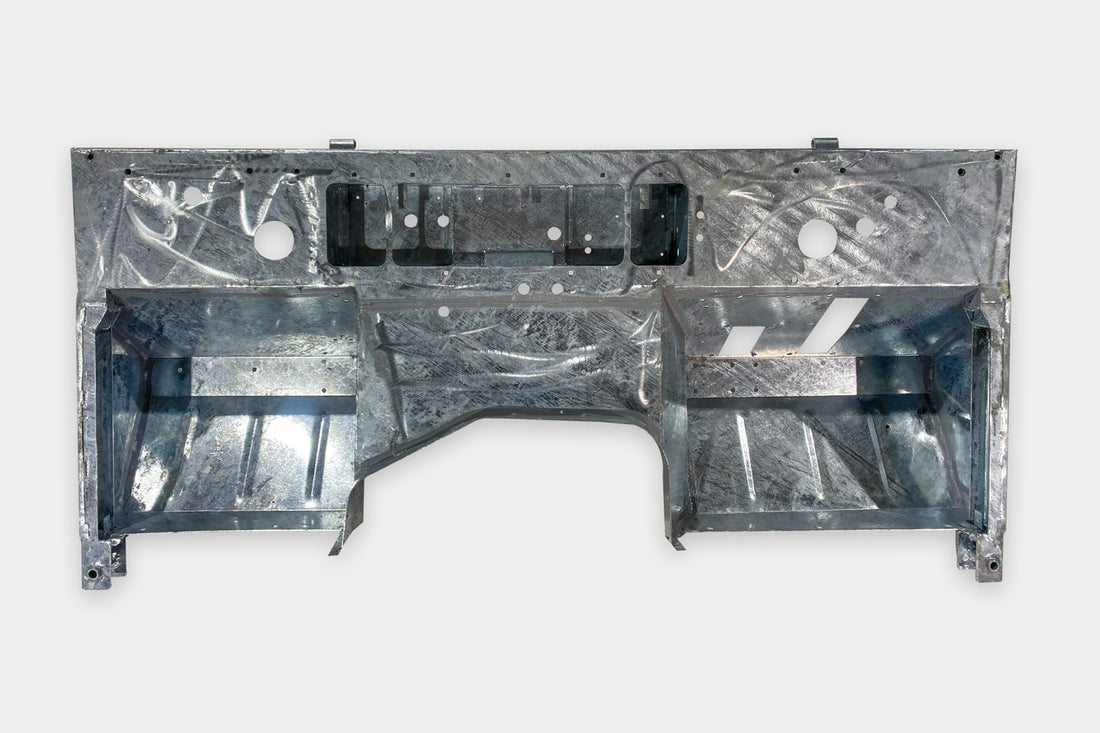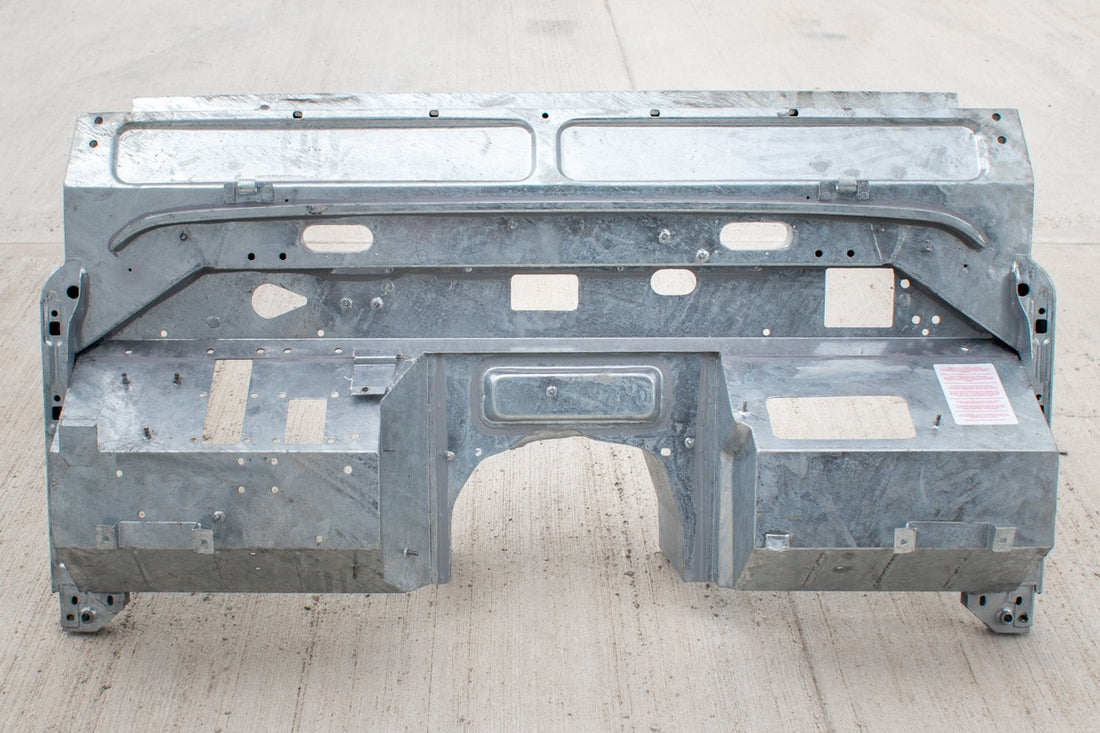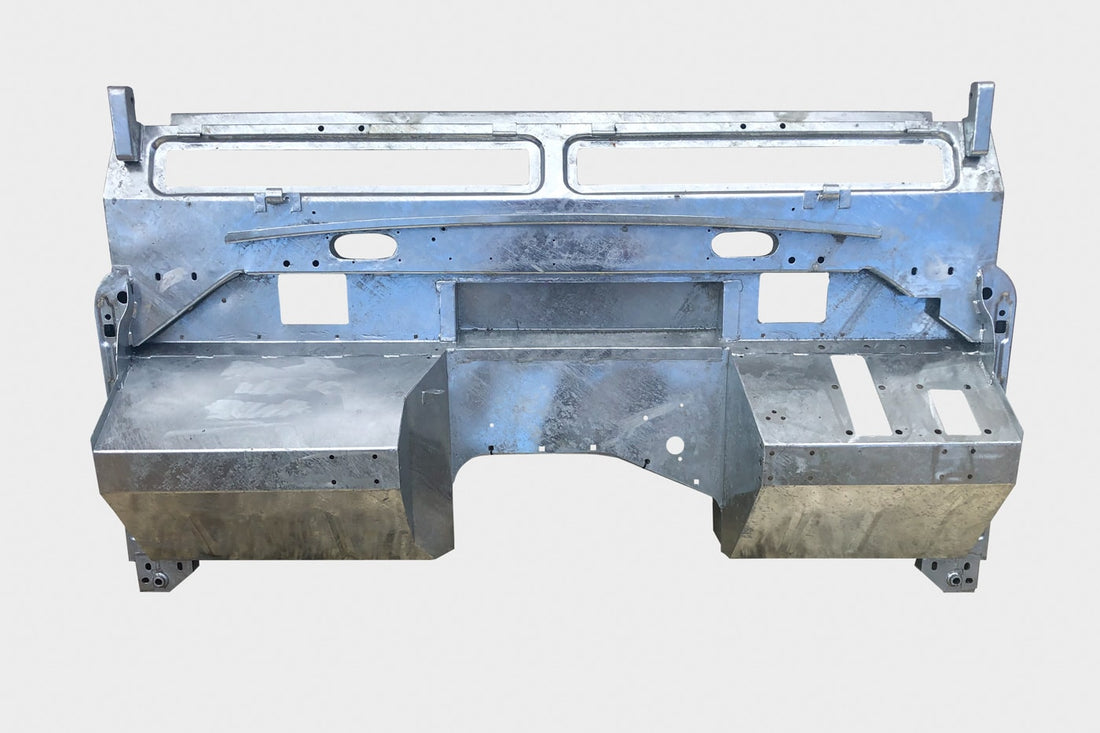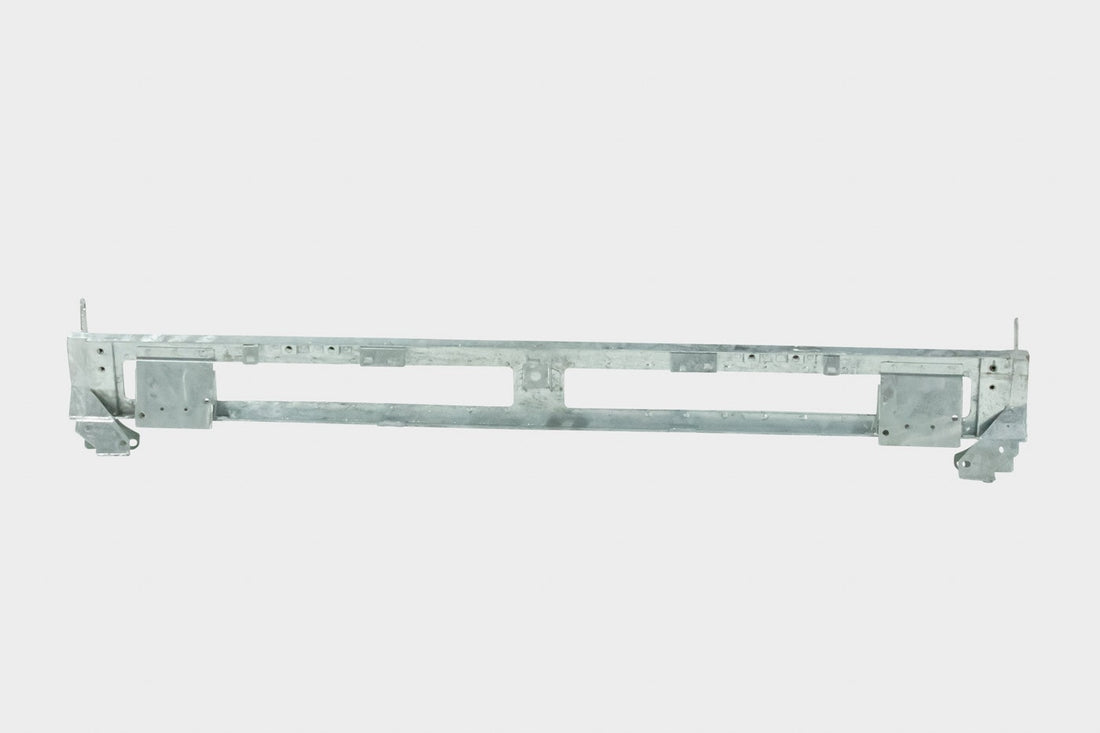Land Rover Series 3 88/109 inch Galvanised Bulkhead
Land Rover Series 2A 88/109 inch Galvanised Bulkhead
Defender 90 200Tdi / 2.5TD / 2.5NA Galvanised Bulkhead
Defender 90 300Tdi Galvanised Bulkhead
Land Rover Series 2 88/109 inch Galvanised Bulkhead
Defender 110 300Tdi Galvanised Bulkhead
Defender 110 200Tdi / 2.5TD / 2.5NA Galvanised Bulkhead
Land Rover Series 3 Lightweight Bulkhead Vent Panel
Land Rover Series 3 Lightweight Bulkhead Lower
Defender 90 Td5 (1998 - 2001) Galvanised Bulkhead
Defender 110 Puma 2.4 / 2.2 TDCi Galvanised Bulkhead
Land Rover Series 3 Stage 1 V8 Galvanised Bulkhead
Defender 110 Td5 (2002 - 2006) Galvanised Bulkhead
Defender 110 Td5 (1998 - 2001) Galvanised Bulkhead
Defender 90 Td5 (2002 - 2006) Galvanised Bulkhead
Land Rover Series 2 Lightweight Bulkhead Vent Panel
Defender 130 Td5 (2002 - 2006) Galvanised Bulkhead
Defender 90 V8 Galvanised Bulkhead
Free UK and Ireland Shipping
On Selected Items
Limited Time Only
Our Chassis
Delivery Service Explained
Should you live in a rural area with narrow roads and laneways, stop your worrying please. Don’t lose your mind or your socks, we will get your chassis delivered!
Should you live in a busy built-up area you don’t need to ask your neighbours to knock down a fence or a wall, or hire a crane, we will get your chassis delivered!
Across the UK and Ireland, we deliver our chassis on small lorries with a long reach Hiab crane. The size and weight of our lorries allows us to travel to you easily and without damage to roads and grass verges. The long reach Hiab crane does all the heavy lifting to safely deliver your chassis right where you need it.
All overseas and international chassis deliveries are handled by our established trusted shipping partners. For these shipments your chassis is protected by securing it to an oversized wooden pallet, keeping it safe and protected during long distance transit.
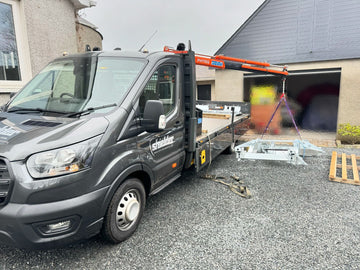
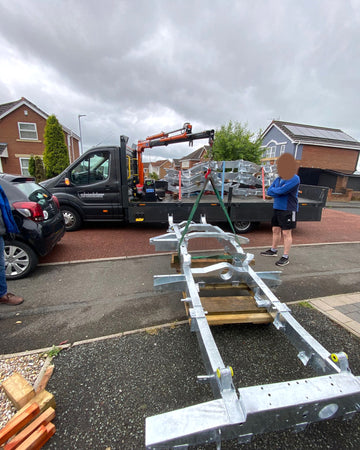
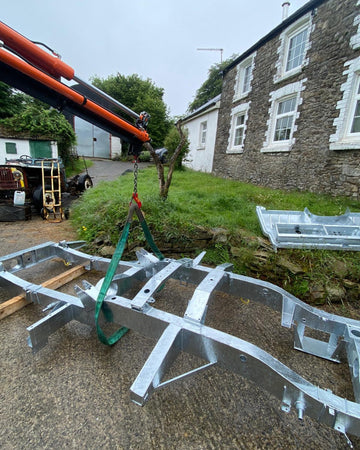
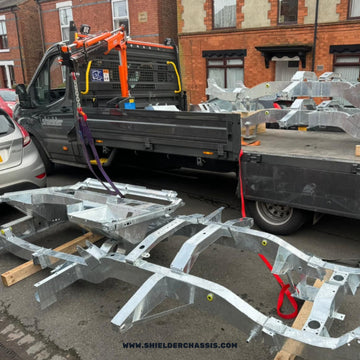
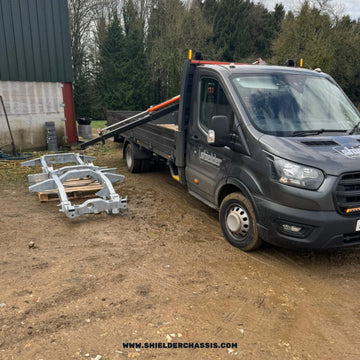
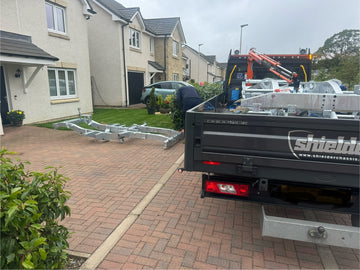
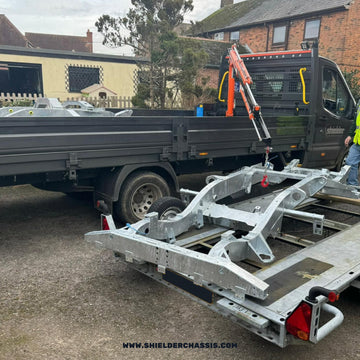
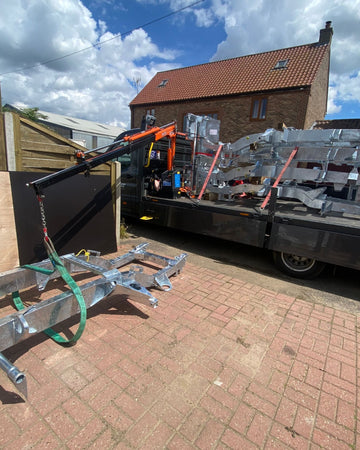
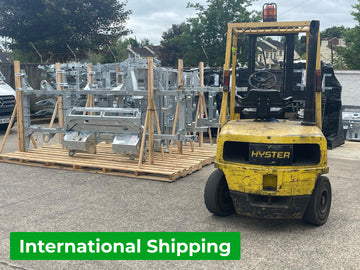
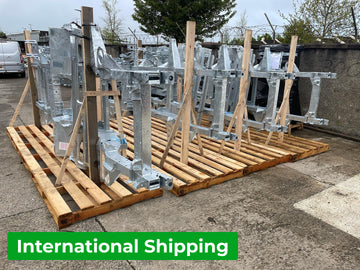
WORKMANSHIP
Quality Matches Established Brands. Price Doesn't.
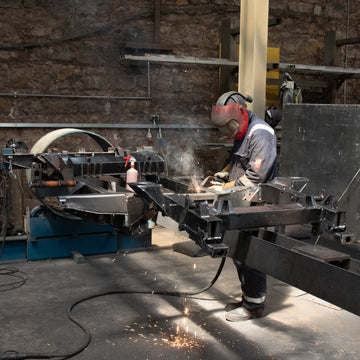
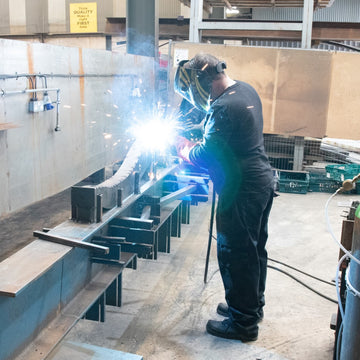
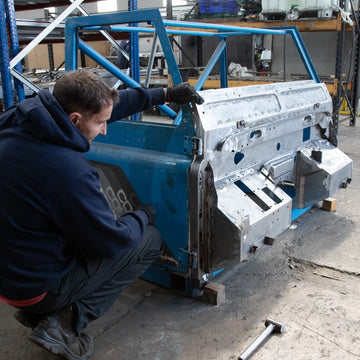
WORKMANSHIP
Quality Matches Established Brands. Price Doesn't.
Having manufactured thousands of units using the same specifications as established brands, our products deliver identical quality and fit. For extra peace of mind we offer 100 Day Returns - because we're confident in our manufacturing standards.
Over 8000 units manufactured using identical British steel grades, welding standards, and dimensional tolerances as other brands. Our refined processes produce the same accurate fitting parts - without the brand markup.
We use the same materials and manufacturing processes as established competitors, but our inhouse operations mean significantly lower costs for you. Same British manufacturing excellence, same perfect fit - just smarter pricing that leaves more budget for your restoration.
ABOUT
Shielder Chassis
Impact Fabrications Limited, founder and owner of Shielder Chassis, is a family-owned business established in 1991. We started manufacturing steel products for specialist industries and now focus solely on Land Rover parts.
As Land Rover owners and enthusiasts ourselves, we understand the financial reality of restoration projects. That's why we engineered our business differently - inhouse operations, direct-to-customer sales, and fair pricing that doesn't compromise on quality.
We use the same British steel grades, manufacturing standards, and quality controls as other established brands, but without the markup. Because we believe Land Rover restoration should be about passion, not paying inflated prices for identical products.
